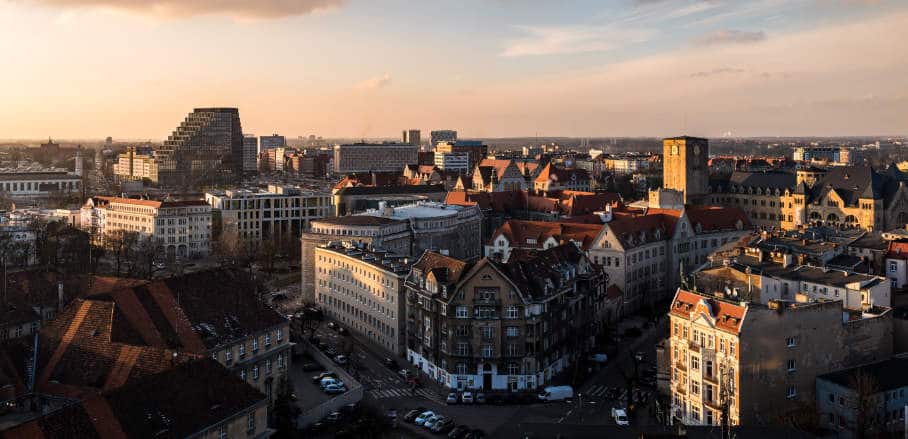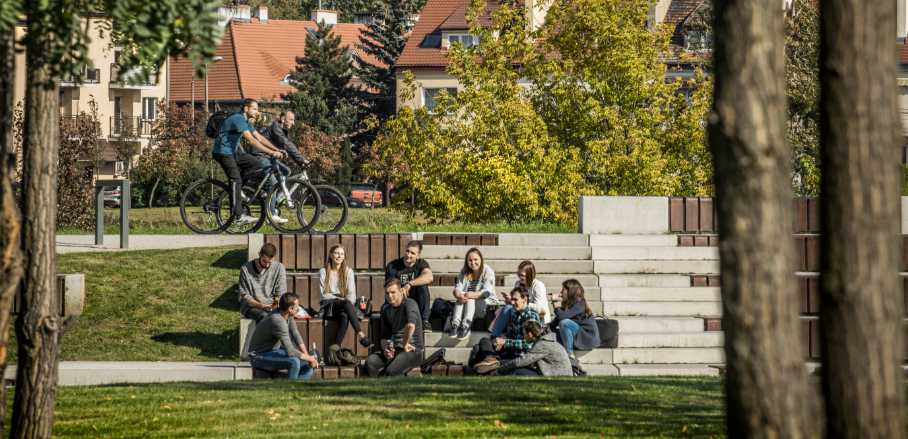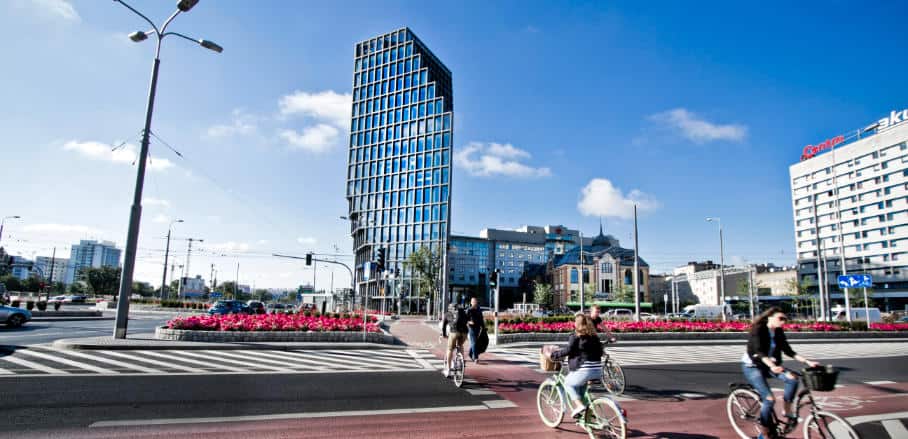Intelligent and Inclusive: The Smart City of Poznań
Meet the award-winning smart city of Poznań! By Michal Lakomski, Director of Digitalisation and Cybersecurity of the City of Poznań
An intelligent city is a next-generation city that uses advanced information and communication technologies to improve the quality of life for its citizens. It does this by unlocking the potential of social capital and by actively involving citizens in the process of building and developing smart solutions to urban challenges. Our award-winning Smart City Poznań Model is an excellent example of such an innovative and inclusive approach!
In our first article, we focused on the most important building blocks of the intelligent city of tomorrow. In this article, we reflect on how digitalisation has enabled Poznań to become more inclusive.

Poznań © Poznań City Hall
Digitalisation and Inclusion
Digitalisation is a key tool for making a city more intelligent, but also more inclusive. If used and deployed strategically, it can strengthen communication with citizens as well as improve bureaucratic processes and internal communication. Digitalisation can help a city to optimise the use of its resources to serve its citizens more efficiently – and ultimately make urban structures more inclusive for all.
We created the Digital Transformation Programme as a strategic roadmap to help us reach our goal of a more intelligent and inclusive city. It corresponds to the Development Strategy of Poznań 2020+, and complements our Poznań Smart City Model. A key feature of our digital transformation roadmap is to design and implement technological solutions that support the processes of citizens and the overall customer service and function of City Hall. These solutions are designed in a way that can be used on a long-term basis and that can be gradually extended, reused, or combined with new services.

The roadmap intends to develop digital and inclusive solutions for all citizens © Poznań City Hall
Best Practices from Poznań
In terms of how digitalisation has improved inclusivity, the pandemic situation has provided many notable examples. One example would be our regular Mayor’s conferences. Under normal circumstances, these would be in-person conferences with a sign-language translator present.
During the pandemic, City Hall decided to produce more sign-language-friendly films to help reach more residents than before, explaining the vaccination process, for example. Similarly, the city also launched a “Digital Advice Phone Line” on the same topic, where city officials were on duty to provide support and answer questions on several related themes, such as how to find the contact details of specific clinics.
Another good example of digitalisation and inclusion would be our “Shopping for Seniors” programme. This is an initiative that provides support for senior citizens and people with disabilities living in Poznań. The service provides basic, everyday products and medicines. To report a shopping need, a citizen simply calls the city’s helpline. Also, through the city’s helpline, seniors can take advantage of additional benefits including window cleaning services, minor medical services, or minor home repairs. These are some of the services offered by the Viva Senior programme.
To help make City Hall more inclusive and to boost citizen participation, we also launched a free municipal “Smart City Poznań” app. The app keeps citizens informed about important events and facilitates their communication with the local authorities. It can signal anything from traffic disruptions to weather warnings and smog reports. It also enables users to report problems or submit suggestions with just a few clicks. The app also has a few other innovative features, such as a chatbot and a spatial information system. It has an alert function that allows citizens to report or become aware of incorrectly parked cars, damaged roads, and other inconveniences.

Barrier-free communication is key for digital transformation © Poznań City Hall
Inclusive and Barrier-Free Communication is Key
There is always one major obstacle between inclusivity and citizen engagement with public authorities, and that is complex vocabulary and specialist jargon. Official documents are often full of unnecessary and often intimidating words. To help combat this, Poznań City Hall supports the plain language movement, and its employees strive to simplify communication with residents. We have produced a special guide and trained staff to make communication as simple and understandable as possible. We are currently developing an electronic editor for official texts to make them more accessible to citizens.
Lastly, the City of Poznań has also created a video portal. This platform enables the publication of pre-recorded materials from conferences, congresses, galas, fashion shows, marketing events, and all types of industry or cultural events taking place in Poznań, but it offers more than that. It can also be used for the preparation of streaming sessions of Housing Estate Councils, and in the future will enable the creation of an audio library or database of useful educational materials.
The aim of the video portal is to showcase the cultural, educational, and business opportunities that can be found here in Poznań and Wielkopolska, and shine a spotlight on the companies, institutions, centres, foundations, artists, and activists that are working to make our city great.
Enhancing digitalisation and inclusion is a never-ending process that needs to be performed with determination. Once you are committed to this change, it should always be an essential part of all your projects, implemented in the early stages of design – digitalisation and inclusion by design!
- Intelligent and Inclusive: The Smart City of Poznań - 17. February 2022
- How to Build the Intelligent City of Tomorrow - 15. February 2022
